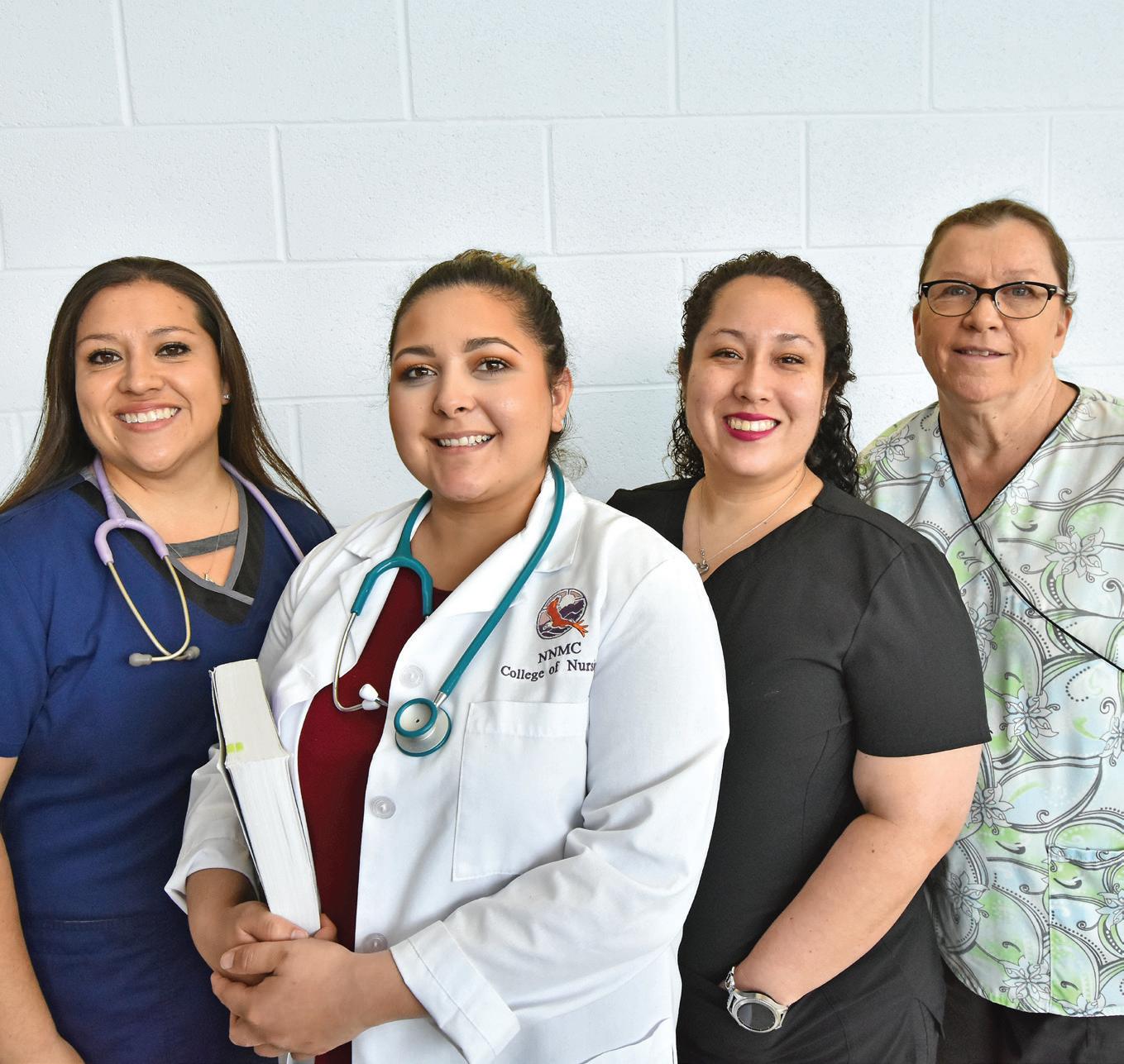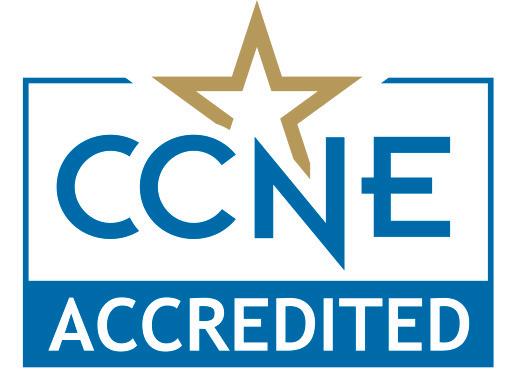FOCUS: DNP/ EVIDENCEBASED
PRACTICE
February 2024

Focus: DNP/ EvidenceBased Practice
PRESENTED BY:

February 2024

Focus: DNP/ EvidenceBased Practice
PRESENTED BY:
2 Editor’s Notebook
4 The Benefits of Earning Your DNP
By Keith Carlson8 Navigating the Doctor of Nursing Practice Program: Top 10 Tips for Success
By Farah Lauren12 Evidence-Based Practice in Nursing: Why It Matters to Nurses and Their Patients
By Julia Quinn-Szcesui16 Practical Strategies for Implementing Evidence-Based Practice
By Louis PillaThis month, Minority Nurse dives into the fascinating world of evidence-based practice (EBP) and the doctor of nursing practice (DNP) degree. When combined, DNP-prepared nurses lead EBP changes by translating scientific and theoretical knowledge into practice. EBP is essential to nursing excellence, integrating the latest research evidence, clinical expertise, and patient preferences to inform decision-making and guide nursing interventions. By basing their practice on solid evidence, nurses can optimize patient care and improve outcomes.
We all know that healthcare is an ever-evolving field that demands nurses to stay up to date with the latest research findings to ensure they provide the most effective and efficient approaches. This helps drive positive outcomes, such as improved patient care, enhanced safety, and increased patient satisfaction.
So, if you want to learn more about EBP or are thinking about earning your DNP, check out this month’s issue.
-The Benefits of Earning Your DNP
Before you take the plunge and enroll in a DNP program:
• Do your due diligence.
• Research your options.
• Talk with those who’ve walked this route before you.
-Navigating the Doctor of Nursing Practice Program: Top 10 Tips for Success
Get tips for success in a DNP program from a nurse who just earned her DNP.
-Evidence-Based Practice in Nursing: Why It Matters to Nurses and Their Patients
Most nurses are familiar with evidence-based practice, but it must consistently be taught or implemented in daily nursing practice to achieve widespread adoption.
-Practical Strategies for Implementing Evidence-Based Practice
Here are a few perspectives and approaches to help base your practice on the latest evidence, with a quick refresher on the importance of EBP.
“You have brains in your head. You have feet in your shoes. You can steer yourself in any direction you choose.” – Dr. Seuss.
CEO
FOCUS:
Editor-in-Chief
Creative
National
Email:
For

Anursing career offers many avenues for nurses of all stripes and interests to fulfill their professional goals. For some, earning a doctorate is a lifelong aspiration that they are keen to fulfill, and nursing offers three options for this accomplishment: the DNP, the PhD, and the Doctor of Nursing Science (DNS or DNSc).
Doctoral programs offer what is frequently referred to as “terminal” degrees since they represent the highest possible level of educational achievement in most disciplines. (Some areas lack a doctoral option; thus, the master’s becomes the default terminal degree.) Considering that a DNP is generally clinically oriented, and a PhD and DNS are geared toward academia and research, a nurse wishing to take their clinical knowledge and education to the highest pinnacle would do well to look at the DNP as a very promising direction.
If you’re wondering about the benefits of earning your DNP, there’s no time like the present to explore the career potential and professional development that such a high-level educational accomplishment can confer on your nursing career.
One clear benefit of earning a DNP is that it offers an unequaled rigorous clinical training pathway. In some DNP programs, you can choose a clinical nurse specialist or educator track, or you can choose to focus on direct patient care as an expert clinician.
Your DNP program will provide a much deeper dive into the theory and science driving
evidence-based advanced nursing practice. Your education may also steer you into organizational leadership, systems thinking, IT and technological advances in nursing and medicine, healthcare policy and advocacy, and quality improvement.
This form of doctoral education will enrich your understanding and professional perspective on multiple aspects of patient care, preventive medicine, population and community health, and other areas of study. Depending on the focus of the DNP program you choose, you may also gain a keener grasp of emerging ideas in nursing and medical science, the effects of climate change and the environment on populations around the world, the social determinants of health, and other trends to watch in the years to come.
With the promise of the most extensive clinical training possible for a nurse, doctoral education can open your mind and help you look at the world around you with a more discerning, critical, and perceptive eye. It will also deepen your understanding of identifying trends that can impact how you practice, the state of the broader healthcare system you are a part of, and your patient’s health and the well-being of larger communities and populations, including the most vulnerable.
Earning Power, Job Opportunities, and Professional Parity
The Doctor of Nursing Practice designation demonstrates to your colleagues, your patients, and the world that you have pushed yourself to achieve the
highest possible level of education as a nurse, accumulating more extensive knowledge and expertise.
In many job markets, nurses with a doctoral degree can sometimes command higher salaries than some of their master’s-prepared counterparts. According to Payscale, DNPs earn an average of $112,000 annually, and NPs earn an average of $106,413, an arguably nominal difference.
However, clinical nurse anesthetists (CRNAs) can expect to earn an average annual salary of $179,343. And since a DNP will be the entry-level degree for all CRNAs as of 2025, newly enrolled CRNA students have been automatically enrolled in DNP programs since 2022.
When applying for executive leadership positions, candidates with a doctoral education can also have an advantage over their master’s-prepared colleagues since a DNP education provides advanced training in organizational management, systems thinking, and the leading of multidisciplinary teams. Executive leadership positions include chief nursing officer (CNO), patient care director, nursing home administrator, director of nursing, or chief nursing information officer. As far as earning power, a CNO can expect to earn an average of $141,000 per year.
Professional Parity:
Since many healthcare colleagues—including MDs, dentists, and physical therapists—are required to achieve a doctorate, earning your DNP can provide you with professional achievement and equality of standing regarding professional parity.
As a nurse with a DNP, you will find yourself collaborating with multidisciplinary colleagues, often in a leadership position. A doctoral degree can bestow a feeling of self-respect and the right to expect and demand equal treatment as a highly educated, knowledgeable, professional healthcare leader.
Achieving Your Highest Goals:
Nurses are all individuals whose personal circumstances and preferences dictate what level of education will bring them a sense of achievement and satisfaction. An aversion to accumulating student loan debt can be enough of a deterrent for some nurses to advance their education. For some, an ADN, BSN, or MSN is enough to scratch their educational itch, and the idea of a doctorate feels foreign, excessive, or simply unnecessary to reach their career goals.
However, there are always some ambitious nursing professionals whose eyes have always been on the prize of a doctorate, whether for personal achievement, professional advancement, or a combination of these and other motivating factors. Doctoral education is an intense and enriching educational experience that some individuals look forward to with relish and excitement, if not a healthy dose of trepidation at the amount of work that completing their education will entail.
Whether for personal reasons, professional advancement, earning power, career mobility, professional parity, or simply a quest for knowledge, earning a DNP can deliver a unique sense of accomplishment for each individual.
Only you can decide if the DNP pathway is right for you and your career. Before you take the plunge:
• Do your due diligence.
• Research your options.
• Talk with those who’ve walked this route before you.
There are many benefits to earning your DNP, and, once you’re armed with enough information, you can make a prudent decision from a place of wisdom and certainty.
Keith Carlson, BSN, RN, NC-BC, has been a nurse since 1996. As a holistic career coach, nurse
podcaster, writer, blogger, and well-known motivational speaker, Keith empowers nurses regarding personal branding; professional networking; entrepreneurship; resume, job search, and interview strategies; emotional and relational intelligence; personal wellness; and the building of a dynamic nursing career.


“It is unlike any other online education program.”
— Maria Labadie-DeGennaro, FNU Alumna
What Sets FNU’s DNP Program Apart:
• Affordable Tuition Rates and Scholarships Available
• In Collaboration with Your Clinical Site, Lead a Rapid Cycle Quality Improvement Project
• 150+ Doctorally-prepared Expert Nurse-Midwife and Nurse Practitioner Faculty
• Supportive Community of Staff and Faculty
• Mission Focused on Serving Rural and Underserved Communities
• One Three-day Campus Immersion Experience With a Small Cohort of Students
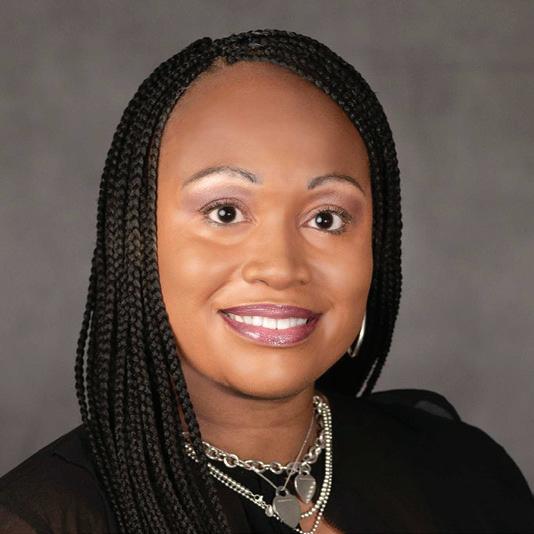
“Everyone is very supportive at FNU and every person that I have been in contact with has made me feel that they all want me to achieve my goal.”
DR. TORICA FULLER, DNP, MSN, FNP-BC, CDP, CGRN, CPN, NRCME FNU Faculty and Alumna

Frontier Nursing University is honored to be a recipient of the 2023 HEED Award for the sixth consecutive year.

Embarking on a doctor of nursing practice (DNP) program is a significant stride toward advancing your career in healthcare. Amidst the increasing demand for advanced nursing professionals, selecting the right DNP program becomes crucial. The DNP program has many options: online, hybrid, and in-person.
However, before diving into the intricacies of program selection and study strategies, ask yourself this most important question: Why pursue a DNP degree?
Clarity on your motivation, the purpose of obtaining your doctorate, and your post-graduation plans set the foundation for a successful journey. There are various potential roles for the DNP graduate, which include careers in nursing education, administration, health policy, nurse practitioner, or informatics. The DNP program prepares nurses to generate new knowledge through innovation of practice change and translating evidence into practice.
This article explores the top 10 tips for prospective DNP students, covering various aspects such as program selection, study strategies, the importance of a study partner, curriculum evaluation, cost considerations, and understanding program outcomes and final expectations.
1. Research and Select the Right Program:
Choosing the right DNP program is crucial. Consider factors such as accreditation, faculty
expertise, and the program’s alignment with your career goals. Thorough research ensures a program that meets your expectations and provides a solid foundation for your future in nursing. Speak to other nurses in the current DNP program to get a sense of these criteria. Selecting a program that meets your personal needs and that is flexible is imperative for your success.
2. Understand the Curriculum:
Please read every detail of the curriculum before committing to a DNP program. Assess if the coursework aligns with your professional interests and career goals. A well-rounded curriculum ensures a comprehensive education and equips you with the skills needed in today’s complex healthcare environment. To be fully transparent, when I was researching a program, I purposely selected a doctoral program that did not include statistics because I did not want to retake it! However, the program did have a tremendously helpful economics course.
3. Evaluate Program Costs: Financial considerations are critical. Evaluate the overall cost of the DNP program, including tuition, fees, and any additional expenses. Look for potential scholarships, grants, or employer assistance programs to alleviate the financial burden. Most institutions have a payment plan that you can set up if needed. I did a lot of research before selecting my university. It was vital for me to have a physical university with an excellent reputation and history. I strongly recommend
being strategic and not paying extra money just to have a prestigious school name on your resume.
4. Create a Realistic Study Plan: Balancing a DNP program with work and family commitments requires careful planning. Develop a realistic study plan considering your workload, responsibilities, and preferred learning pace. Creating a realistic plan can prevent burnout and reduce anxiety. I did most of my schoolwork at night while everyone was sleeping. Plus I know that I function better at night.
5. Consider a Study Partner/ Colleague Support: A colleague or study partner can enhance your DNP experience. Collaborative learning fosters a supportive environment, provides different perspectives, and facilitates sharing resources and study materials. I had two close friends in the program,and having that continued support was instrumental to my success. We held each other accountable, checking with each other daily to ensure we were okay or to remind each other to submit assignments on time.
6. Utilize Online Resources: Use online resources and platforms to supplement your learning. Many DNP programs offer virtual libraries, discussion forums, and additional study materials. Embracing technology can enhance your understanding of the coursework and make your life easier. Please use all the resources you have available to you. Learn how to do a proper library search for articles because it will save you hours
of work. The librarian can be your best friend throughout the program.
7. Prioritize Self-Care:
Balancing work, family, and a complex academic program requires self-care. Prioritize physical and mental wellbeing to sustain energy levels and focus throughout the DNP journey. This is harder said than done. I strongly recommend scheduling self-care time and activities. The DNP program is a rigorous program with high demands. Real talk: I cried several times and wanted to quit. However, I kept thinking of my kids, and my motivation kicked into gear.
8. Effective Time Management: Mastering time management is crucial for DNP success. Create a schedule that allocates dedicated time for coursework, work obligations, and personal commitments. Efficient time management ensures a wellrounded and fulfilling experience. It sounds silly, but please read the entire syllabus before your course begins.
9. Stay Proactive and Communicate With Professors: Maintain an open line of communication with your professors. Staying proactive ensures that you receive timely guidance, support, and feedback. I procrastinated during my DNP program, so I would not recommend it. Establishing a solid rapport with your professors can positively impact your academic journey. I sometimes found asking for sample examples for specific assignments were helpful to better understand the expectations.
10. Understand Program Outcomes and Final Expectations:
Be clear about the DNP program’s ultimate expectations and ask many questions. Understand whether you must implement a study or present a project proposal. I had to submit my study to the Institutional Review Board (IRB) for approval. From personal experience, I strongly recommend creating a toolkit--I created a Stress Reduction Toolkit for Nurses. I often joked about using those same stress reduction strategies during the DNP program. Knowing the program outcomes ensures you are prepared for your academic journey and can confidently meet the final expectations.
Don’t compare your DNP journey to anyone else’s. Please
give yourself grace and be patient. I failed a DNP course, my DNP proposal course, and I was devastated. It was a long, complicated story that ended in a denied appeal from the Dean. I was distraught when it was happening; however, I realized that perhaps God had a different path for me. We know that not all paths are linear, and neither was mine. It taught me to be more patient and more precise.
I recently completed my DNP program in organizational leadership. My goal is to combine my experience in emergency medicine, education, and leadership into an exciting role where I can apply all my knowledge and skills. I am passionate about education, career development, and growth for all nurses, particularly novice nurses.
I am dedicated to improving workplace culture and wellness due to my previous experiences with toxic workplaces, discrimination, and bullying. My mission is to empower all nurses globally to pursue their personal, professional, and business goals. I started my DNP journey 3 years ago, and it has been a roller coaster ride. My experience of juggling a fulltime job, a young family, and a business highlights that completing a DNP program is feasible and immensely rewarding when one has determination and a strategic approach.
Enrolling in a DNP program can be overwhelming, but success is achievable with careful consideration and strategic planning. Integrating these top 10 tips into your DNP journey allows you to navigate the
challenges and reap the rewards of advanced nursing education.
Remember, there is never a “right” time to start; it’s about finding the time that works for you and committing to the journey.
Good luck!
Farah Laurent, DNP, MSN-ed, NEA-BC, NPD-BC, CPXP, TCRN, CPEN, CEN, is the proud founder of Farah Laurent International Nurse Coach, LLC, where she provides unparalleled career guidance to help nurses level up and land their dream positions.


Messiah’s MSN and DNP degree programs are accredited by the Commission on Collegiate Nursing Education
In the rapidly changing world of health care, skilled nurses with an advanced nursing degree are in high demand. Advance your career as a family nurse practitioner or in nursing leadership with a Doctor of Nursing Practice degree or as a nurse administrator or nurse educator with a Master of Science in Nursing degree from Messiah University.
Our program offers:
• Courses taught by supportive faculty from a Christian faith perspective
• Clinical hours are intentionally planned and assigned to add value to your education
• Deferred tuition option with no out-of-pocket tuition fees
• Small class sizes and personal attention
• Flexible start dates and plans of study
• Online coursework
messiah.edu/gradnursing
 By Julia Quinn-Szcesuil
By Julia Quinn-Szcesuil
Most nurses are familiar with evidence-based practice (EBP), using research-proven healthcare techniques to enhance patient care, the nursing environment, and nursing practices. And the benefits of EBP-led care are well documented. However, with all the positive results, EBP must consistently be taught or implemented in daily nursing practice.
Despite various studies that show the benefits of EBP for nurses, patients, and healthcare organizations, adopting the practice could be more widespread. Whether or not they work in an environment that supports EBP, nurses can better learn to apply EBP more.
What exactly is EBP? Kim M. Bissett, PhD, MBA, RN , and director of the Center for Evidence-Based Practice at the Johns Hopkins Institute , specializes in EBP and says, “At the most basic level, EBP is a
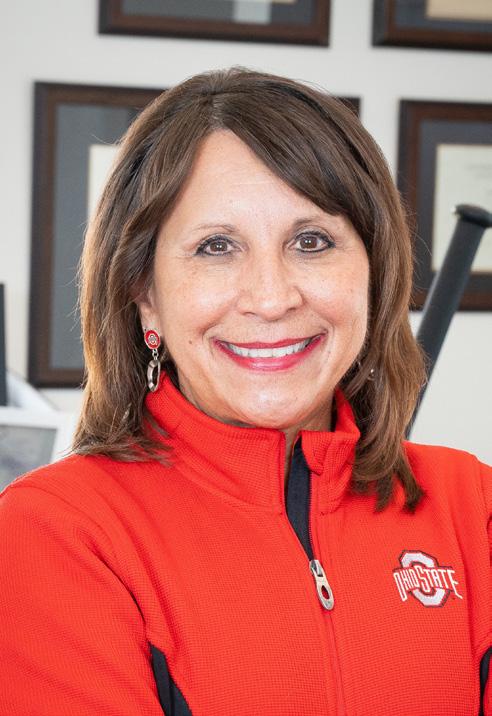
Bernadette Melnyk, PhD, APRNCNP, FAANP, FNAP, FAAN, is the vice president for Health Promotion and the Helene Fuld Health Trust Professor of Evidence-Based Practice at The Ohio State University.
problem-solving approach to the decision-making process that uses the best available scientific and experiential evidence, coupled with critical thinking, to improve care.”
The method works, says Bernadette Melnyk, PhD, APRN-CNP, FAANP, FNAP, FAAN, vice president for Health Promotion and the Helene Fuld Health Trust Professor of EvidenceBased Practice at The Ohio State University. “We have such a strong body of evidence that when EBP is implemented, … patient outcomes and safety are better,” she says. “We know that.”
With a patient-focused nursing priority, practicing nurses find inspiration in using innovative and successful methods. “Evidence-based practice is the most essential part of the nursing profession,” says Michael Williams, DNP, APRN, FNP-BC, a lead nurse practitioner at the Center for Health Empowerment-CHE in Austin, Texas. “As a collective, organized workforce, it ensures we are keeping up with the demands of healthcare.” As healthcare delivery becomes more complex, Williams says EBP helps nurses answer their questions. “It allows us to be in a position to keep up with the demands and always be innovating.”
Patient care is only enhanced when identified and proven practices are followed. “EBP ensures patients are receiving the most current care using the best available evidence,” says Bissett. “By implementing evidence-based interventions, nurses can enhance the quality of care patients receive. For example, implementing evidence-based guidelines and protocols minimizes errors and complications such
as medication errors, risk of infections, and unnecessary procedures that could lead to complications.”
As Williams notes, nurses can pause and reexamine their actions when new EBPs are introduced. “It’s exciting when we have the opportunity to learn something new,” he says. “It’s easy to get caught up in the day-to-day, giving us a chance to reset. When new guidelines pop up, it appeals to that side of nurses that are innovators or creators.”

Michael Williams, DNP, APRN, FNP-BC, is a lead nurse practitioner at the Center for Health Empowerment-CHE in Austin, Texas.
The kind of pause that Williams mentions also refreshes nurses. “Nurses can use EBP for a variety of reasons. Some include improving or validating current practice, identifying better ways to achieve patient outcomes, and answering clinical questions,” says Bissett.
Despite all the good that comes from EBP, complex factors often result in an inconsistent
application. A 2021 study found that moving research findings into regular practice takes at least 15 years. Despite medical and technological advances, that number has barely shortened in the past 20 years.
Other studies show that most nurses need to be more competent in EBP. Roadblocks to more widespread adaptation of EBP include a need for a targeted curriculum, too few mentors to show EBP in everyday work, a minimal amount of EBP investment by healthcare organizations, and a fallback to traditional nursing practices.
“In some nursing units, it is not uncommon to have practices persist even after scientific evidence has proven those practices to be ineffective,” says Bissett. “The nurses continue to practice the way they have always practiced. This persists until nurses start to question their practices and start looking for better alternatives.”
Nurses can still gain the needed knowledge even in organizations with little EBP-defined work. At work, they can also bring research demonstrating the efficacy of EBP to management. “People are able to negotiate better with evidence,” says Melnyk, noting it can help nurses advocate for change or increase investment.
In general, active and involved nurses will become aware of new guidelines or EBPs as these new developments emerge, and they can position themselves to gain more knowledge. If EBP isn’t part of a nurse’s training, Melnyk suggests nurses take a short, free course to familiarize themselves with the seven steps of EBP or a
more intensive course for mastery of skills.
Williams says that nurses may glean excellent information from listening to two or three podcasts in their specialty. They could also subscribe to a few nursing magazines or journals to keep abreast of the latest news. Getting involved in the nursing community by joining a professional organization is excellent. Williams is an active member of DNPs of Color. Bissett says setting up a Google alert for specific topics is an easy way to discover new information and conferences are also excellent to learn of the most current information.
There’s also a link between nurses who practice with the most proven methods and their well-being, says Melnyk. She says that even the most highly skilled nurses can’t make much progress if they are burned out
and acutely stressed. “You have to tackle this in the culture,” she says.
Attaining that additional knowledge is a powerful tool in nursing practice and a professional motivator that leads to more job satisfaction and even better performance for individuals and teams. Melnyk says that if nurses negotiate for change and are met with endless pushback or flat-out denial, they may want to consider moving on to a different organization.
Bissett notes that nurses’ confidence grows when they are equipped to make informed decisions about patient care and have the resources to consider factors such as efficacy, safety, and patient preferences. The critical thinking that comes with EBP means nurses learn something new, have the tools to analyze why it works,
and then apply it to their practice, she says.
The nursing community offers exceptional learning opportunities if nurses are open to different perspectives. Williams says his position as an experienced nurse means that he learns from listening to the questions and ideas of new nurses. “That’s something that isn’t talked about enough,” he says. “Student nurses will say, ‘This is what I learned.’ And it’s different from what I learned in nursing school.”
Some questions can prompt a reexamination of practices. A workplace culture that encourages information sharing and is open to all questions is one in which nurses can learn from each other in a way that is to everyone’s advantage.
A constant rotation of new nurses and information necessitates continual evaluation of practices. “It is important to understand that once an EBP project is complete and a practice change has been implemented, it does not mean that issue is closed,” says Bissett. “Nurses must continue to verify that their practices are in line with current best evidence.”
Nurses, says Bissett, need to be active consumers of evidence. “We should be constantly looking for ways to improve our practice and to use the best evidence,” she says. “We have to stay well-informed, and that requires some action on our part.”
Julia Quinn-Szcesuil is a freelance writer based in Bolton, Massachusetts.

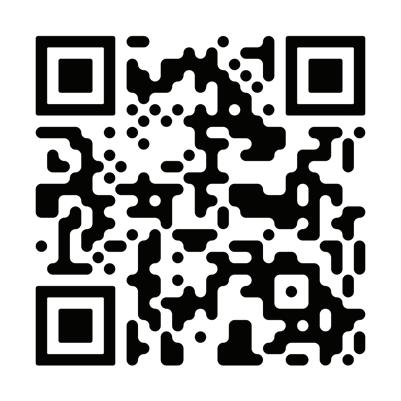
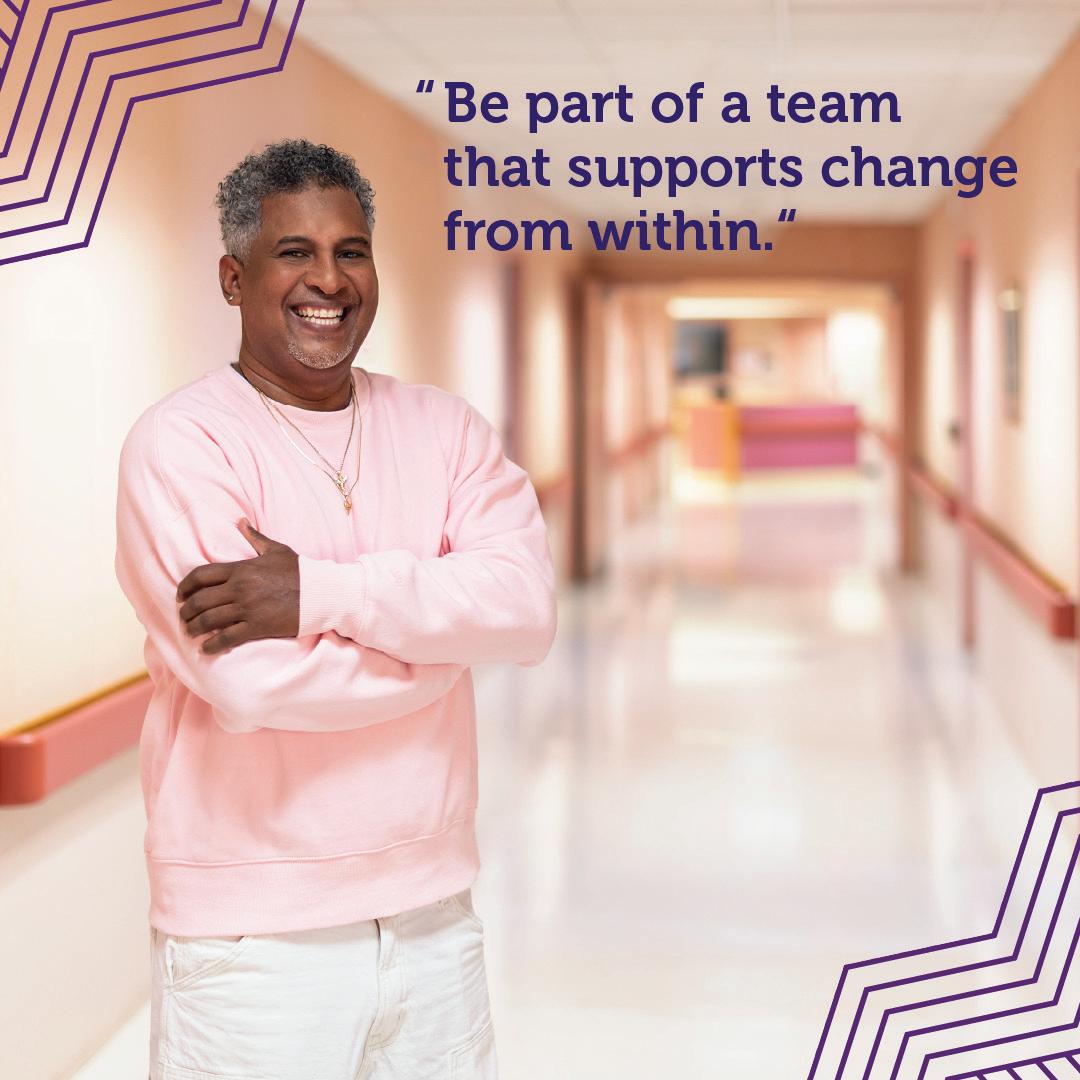
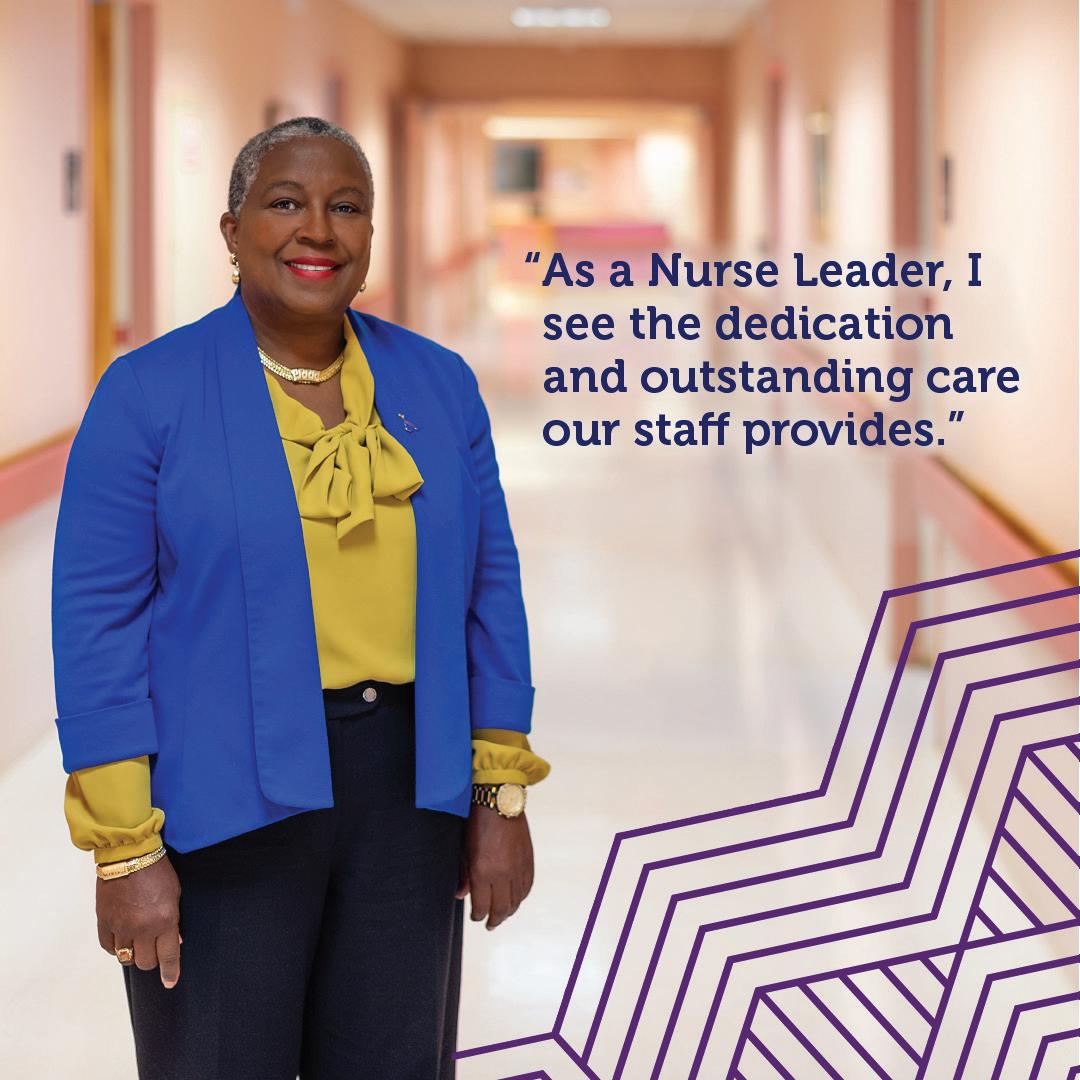
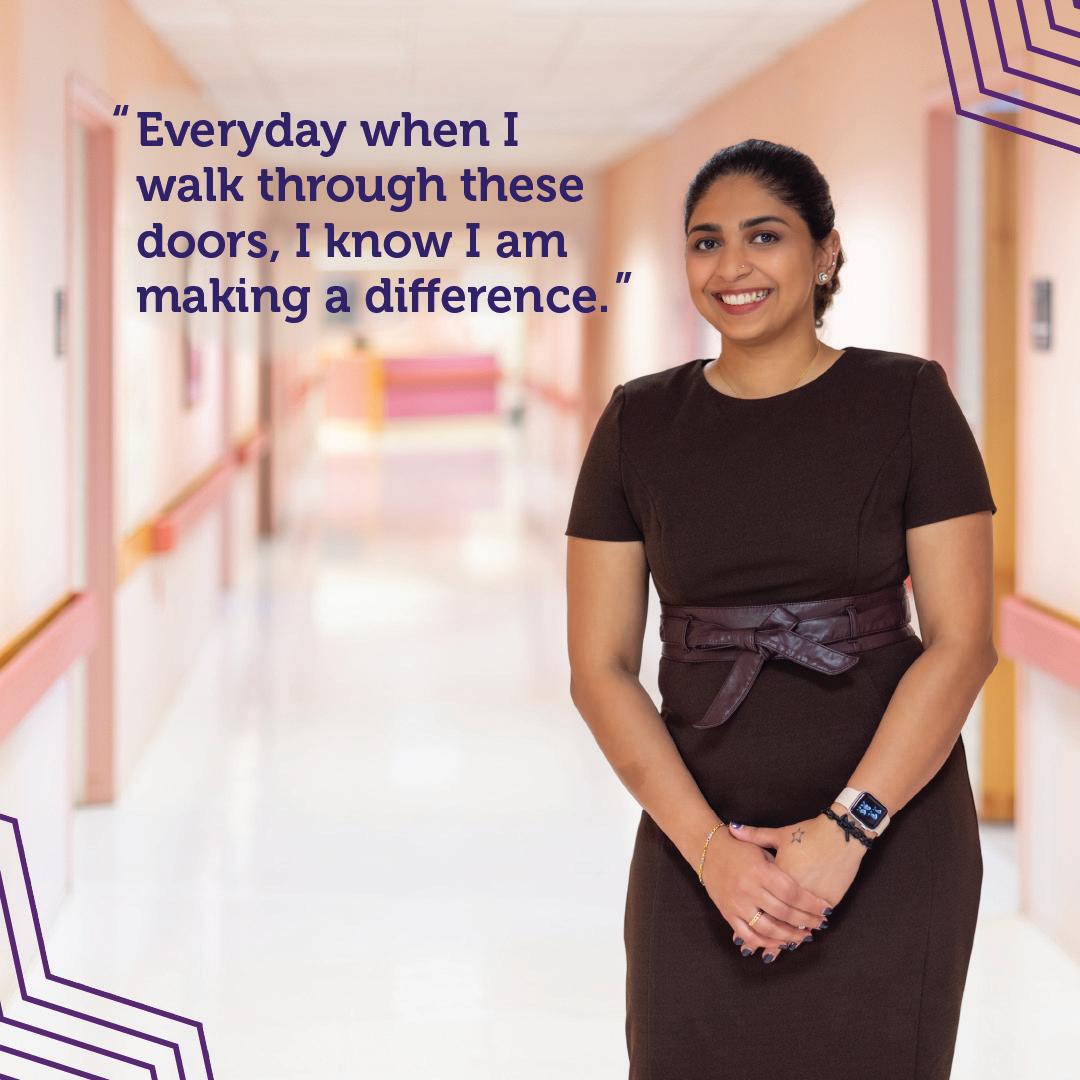

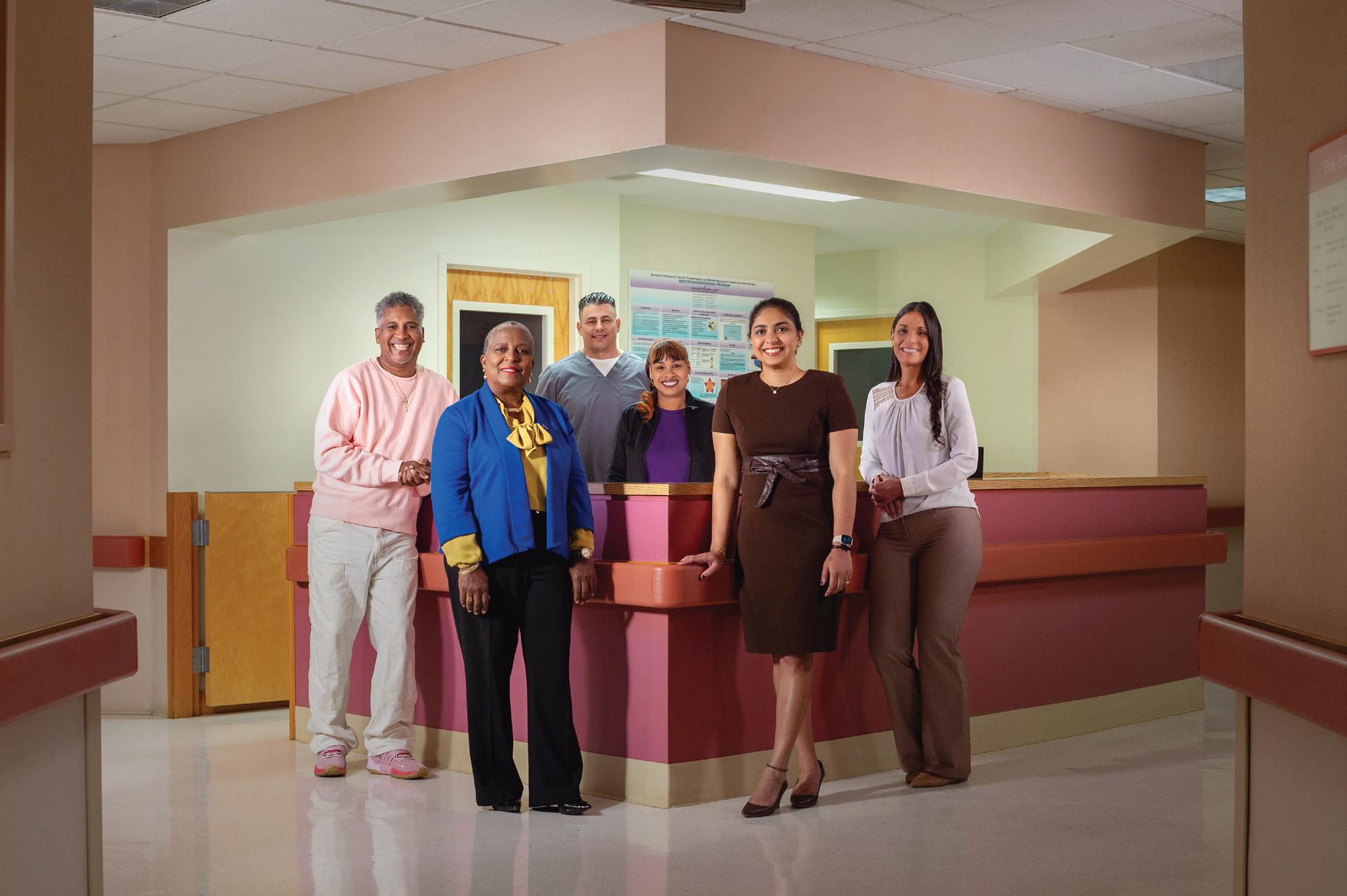

Basing your nursing practice on the latest evidence and research remains critical to providing optimal patient care.
Practicing nursing based on tradition, “how we’ve always done it,” or outdated research can lead to poor patient outcomes, inappropriate care, or serious errors.
No doubt you studied evidence-based practice (EBP) in school, read about it in journals or attended in-service sessions about using evidence in practice. And you no doubt have every intention and desire to base your nursing practice on the latest research. But how can you do that when your days quickly spin into a whirlwind of patient admissions, procedures, and more?
In this article, we’ll offer a few perspectives and approaches on ways to help base your practice on the latest evidence. But first, a quick refresher on the importance of EBP.
“By integrating the latest and most robust evidence into our day-to-day nursing practices, as nurses, we ensure that our interventions are grounded on the most recent or latest advancements in healthcare and patient preferences and values, thus promoting safe, effective, and high quality care,” according to Meredith Padilla, PhD, RN, CCRN-CMC, clinical practice specialist for practice excellence at the American Association of Critical-Care Nurses (AACN).
“Moreover, EBP fosters a culture of continuous learning and professional development and elevates the standards of nursing practice. Additionally, a recent study reports that EBP culture and mentorship increase job
satisfaction and intent to stay among nurses.”
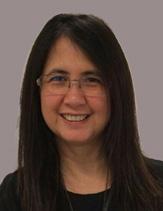
Meredith Padilla, PhD, RN, CCRNCMC, is clinical practice specialist for practice excellence at the American Association of Critical-Care Nurses (AACN).
Highlighting the importance of bringing evidence into practice, an entire field of research is now dedicated to determining the best methods and strategies (or interventions) for facilitating the implementation of research evidence in healthcare decision-making, including day-to-day nursing practice, according to Jennifer Yost, PhD, RN, FAAN, professor, M. Louise Fitzpatrick College of Nursing, Villanova University. She notes
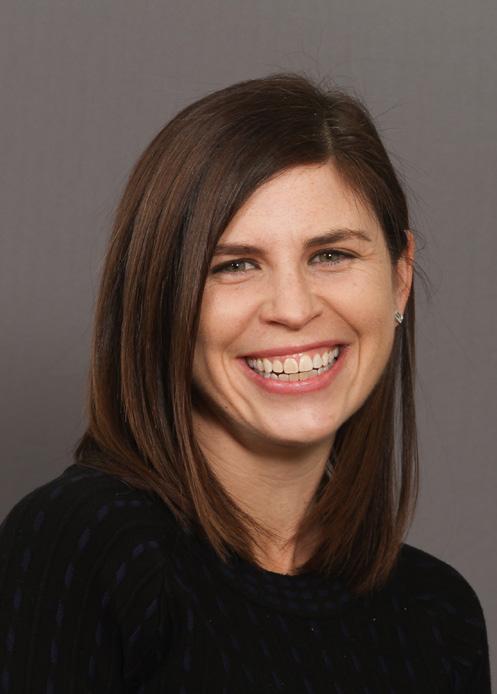
that this is commonly referred to as implementation science, knowledge translation, or translational science.
In bringing evidence to the bedside, nurses must cultivate a culture of inquiry, notes Padilla.
“Asking questions is the initial step toward EBP,” she says. She suggests using the PICOT format (Patient/population, Intervention, Comparison, Outcome, Time) to frame the question.
Also, use an EBP model to guide your work. Examples of EBP models, she notes, include the Iowa Model , the Johns Hopkins Evidence-Based Practice Model, the Advancing Research and Clinical Practice Through Close Collaboration Model (ARCC), and the Stevens Star Model of Knowledge Transformation.
All of these models, she notes:
• emphasize the importance of identifying and defining specific clinical questions that require EBP solutions and utilize the PICOT format guide to search for evidence;
• share a step of conducting a systematic and thorough review of the best available evidence related to the clinical question;
• have a common goal of the translation of evidence into clinical practice; and
• emphasize evaluation of the implementation process and continuous improvement.
Tap your resources, Padilla says. Collaborate with a colleague, nurse leader, or interdisciplinary team member who can provide support and mentorship as you explore the evidence behind a clinical question.
Along those same lines, cultivating a culture of peer review and mentorship is pivotal, says Sandra Russo, PhD, RN, director of nursing and chairperson of the nursing program at Touro University. She notes that peerreviewed journal club meetings and mentorship programs can provide a platform for exchanging knowledge and developing critical skills.
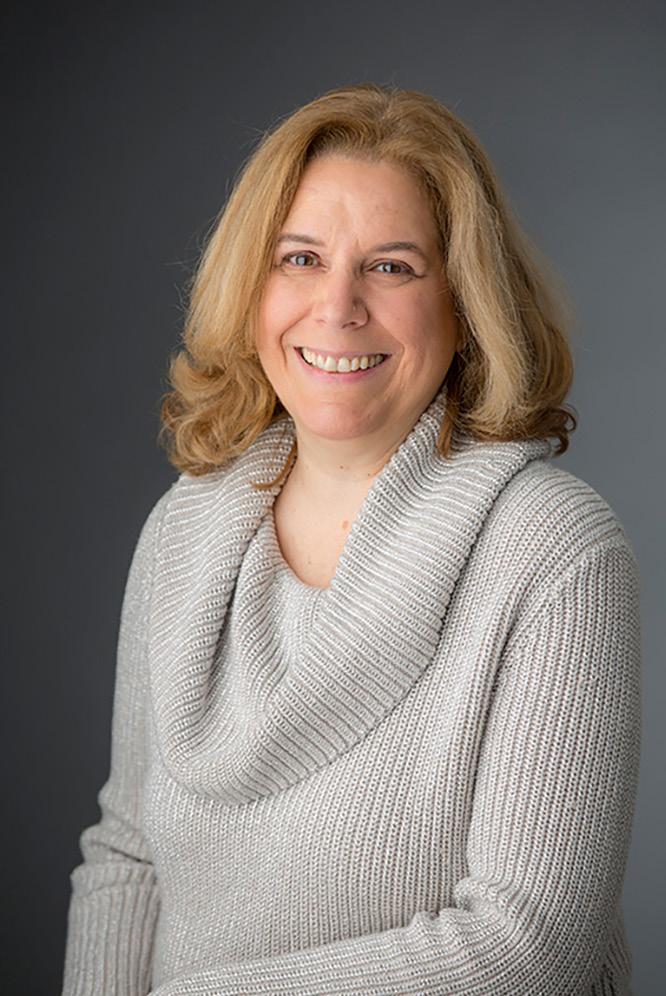
Having easy access to EBP resources is key. Hospitals and healthcare agencies should support EBP by providing nursing staff with easy access to reputable nursing journals, online databases, and academic resources, says Russo.
In addition, don’t neglect to consult your institution’s policies and procedures, says Pamela Barnwell-Sanders, EdD, MBA, MSN, RN, associate professor of practice at Egan School of Nursing and Health Studies, Fairfield University. She says that even if you’re performing a procedure regularly, you may discover that the policy or procedure has been updated to reflect the latest evidence.
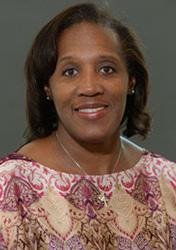
Resources to help nurses identify the best available evidence, notes Padilla, include published clinical practice guidelines research databases like PubMed, CINAHL, and the Cochrane Library
When it comes to searching for evidence, starting a search for the already-synthesized evidence (e.g., systematic reviews or clinical practice guidelines based on systematic reviews) can improve search efficiency, according to Yost. Searching repositories of evidence syntheses (e.g., Epistemonikos) and databases, such as PubMed, that allow one to limit searches to
systematic reviews is also helpful, she says.
As with most aspects of healthcare, analysis and feedback are critical. Regular audits of nursing practices are necessary to assess adherence to evidencebased guidelines, notes Russo. She says constructive feedback, recognizing positive behaviors, and addressing areas requiring improvement is the cornerstone of a continuous improvement cycle.
The nurse at the bedside should always be asking why, says Barnwell-Sanders. With
a firm understanding of and grounding in EBP, you’ll have a solid knowledge of why a practice or procedure provides the best evidence-based care for your patients.
Louis Pilla is a seasoned publishing expert with over 20 years of experience providing content and digital products to healthcare audiences.


n
